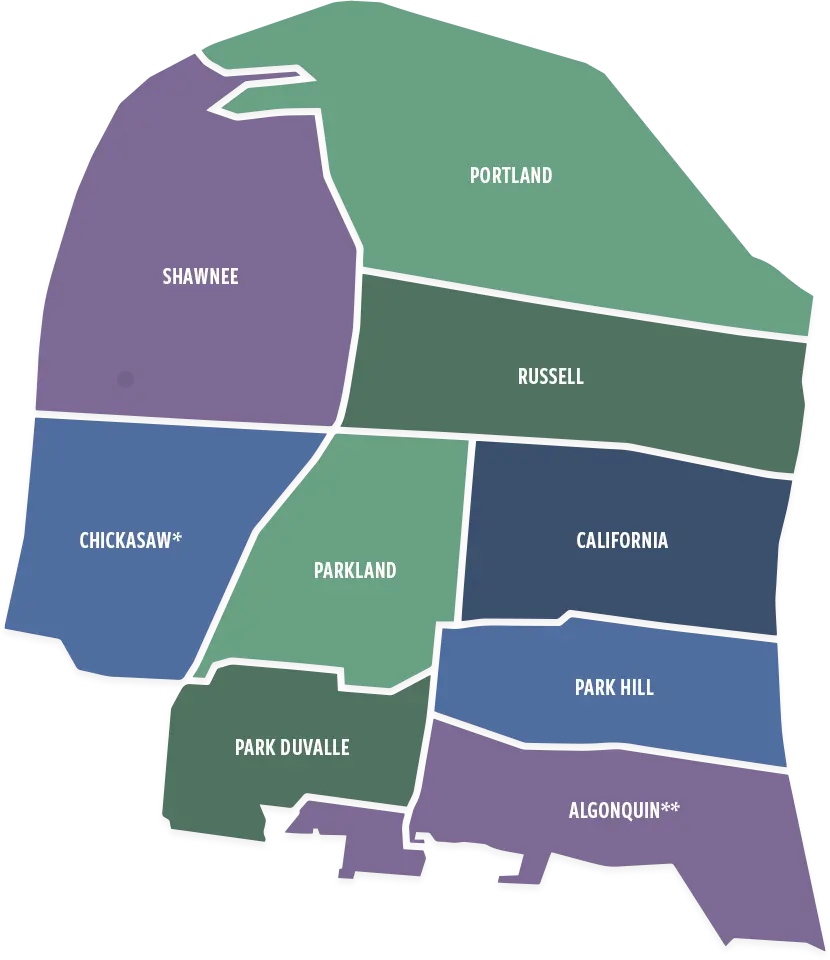Russell residents shape the future of the neighborhood today just as they always have; plenty of notable Louisvillians have come out of the area, including Lyman T. Johnson, who filed a successful federal lawsuit to become the first African American to gain admission to the University of Kentucky, and Albert E. Myzeek, an educator and civil rights activist who led the fight to open the first full-service library for African Americans in the country. The Western Branch of the Louisville Free Public Library opened in 1908, and other branches have since spread into other West End neighborhoods because of it.
Otherwise, the Russell Neighborhood is home to several community resources, including the Russell Community Garden, Louisville Central Community Center, Baxter Square Park and Community Center, and the Kentucky Center for African American Heritage. It attracts national attention with several high school sporting events taking place at the new, state-of-the-art indoor track at the Norton Healthcare Sports and Learning Center and provides safe exercise space and community activities at the Chestnut Street YMCA. Living in the Russell community also provides several educational opportunities at 17 different public schools:



